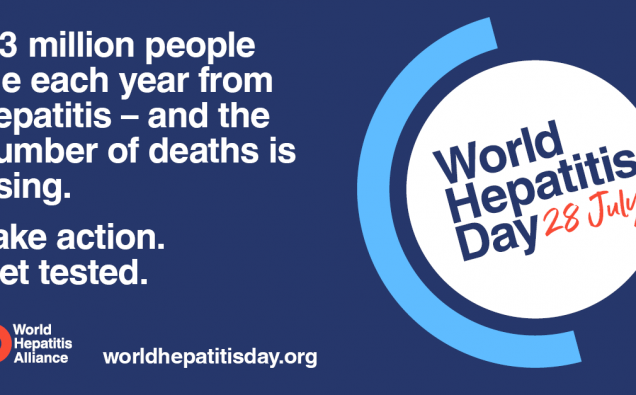Drop-in sessions to raise awareness of hepatitis will take place at the Library of Birmingham this month, ahead of the building’s iconic façade being illuminated in purple to mark World Hepatitis Day.
Hepatitis is the term used to describe inflammation of the liver. It’s usually the result of a viral infection (hepatitis A,B,C) or liver damage caused by drinking alcohol. There are several different types of hepatitis. Some types will pass without any serious problems, while others can be long-lasting (chronic) and cause scarring of the liver (cirrhosis), loss of liver function and, in some cases, liver cancer. In 2022, there were 222 new cases of hepatitis B and 203 new cases of hepatitis C reported in Birmingham and Solihull.
Hepatitis B and C can be passed on through unprotected sex, using contaminated equipment for injecting drugs, receiving cosmetic treatments with equipment that has not been sterilised properly, having a blood transfusion in a country that does not check blood for hepatitis B, or from mother-to-child during pregnancy/birth.
Staff and volunteers from the Hepatitis C Trust and the Hepatitis C Operational Delivery Network (ODN) will have a stall in the Wellbeing Space on the library’s ground floor from 11am to 4pm on both Monday 22nd and Wednesday 24th July, with the aim of raising awareness of viral hepatitis, as well as signposting people to where they can get tested for the virus.
The library itself will light up purple on the evening of Sunday 28th July, which is World Hepatitis Day.
This awareness-raising campaign forms part of the Fast-Track Cities+ programme, which aims to target and eliminate HIV, hepatitis B, hepatitis C and tuberculosis (TB) across Birmingham by reducing the stigma attached to these conditions and increasing the number of people getting tested and treated.
Getting tested for hepatitis B and C is easy and can be done via an individual’s GP, the Umbrella Sexual Health Service or the Change Grow Live charity. Alternatively, individuals can order a self-testing kit online for Hepatitis C or contact the Hepatitis C Trust helpline on 020 7089 6221, and a member of its Birmingham team will then get in touch to arrange a test.
Treatment for both conditions is straightforward, and individuals will be supported throughout, to tackle the virus and help them get back to normal as soon as possible.
Councillor Nicky Brennan, Cabinet Member for Social Justice, Community Safety and Equalities at Birmingham City Council, said: “In Birmingham, we are committed to eliminating Hepatitis B and C by 2030, through the Fast-Track Cities+ programme. We can achieve this ambitious – but reachable – goal by working with communities to reduce the stigma associated with these conditions and encourage people to get tested and get treated.”
Danny Morris, Regional Manager, The Hepatitis C Trust, said: “Hepatitis can affect anyone, and the majority of people with the virus won’t experience any obvious symptom or signs of infection. Untreated, hepatitis C can cause long term liver damage which may lead to liver cancer. Because of this, it is important to get tested regularly, particularly if you have one or more of the risk factors. The good news is that testing is very accessible and the sooner the virus is picked up, the sooner life-saving treatment can begin.”


















